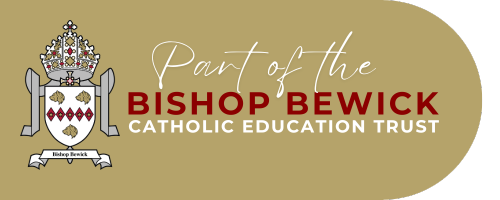
SEND
ALL PUPILS WITH ADDITIONAL NEEDS
There are a number of reasons why a child may be identified as having SEN:
-
They are having significant difficulty with their learning and making far less progress than would be expected.
-
They have a specific learning difficulty, for example dyslexia.
-
They have emotional or mental health difficulties.
-
They have difficulties with social communication and interaction.
-
They have sensory and/or physical needs, for example a hearing or sight impairment
For all children at St Mark’s RC Primary who have an additional need we:
-
Recognise that the family is the expert on their child and work in partnership with them.
-
Deliver high quality teaching, adapting the curriculum and our resources to ensure children can access the learning.
-
Employ a fully qualified Special Educational Needs Co-ordinator (SENCO) to lead on SEN provision across the school.
-
Assess and review the learning of our SEN children, using that information to inform future planning and teaching.
-
Provide teaching assistants in class who work with SEN children and also, importantly, support other children so that the teacher has more opportunities to work with the SEN children.
-
Hold regular meetings for teachers and teaching assistants with the SENCO, to review children, interventions and resources and to adapt provision where necessary.
-
Support our families with children with SEN, formally through review meetings and informally through our “open door” approach. Families are also advised of other services and organisations which may offer further advice and support.
-
Work closely with outside agencies to ensure each child’s needs are fully identified and understood and to learn from specialists how best to support our SEN children. (Link: Outside Agencies)
-
We evaluate intervention groups and strategies on a termly basis.
-
Regularly evaluate our teaching resources to ensure they are accessible to all SEN children.
-
Ensure our school activities and trips, as far as is possible, are accessible to all our SEN children.
-
Hold termly review meetings with families for children with a higher level of SEN.
-
Provide on-going SEN training and information for teachers and teaching assistants
-
Liaise closely with pre-school settings, other school and high schools at transition times to ensure SEN pupil information is clearly communicated and recommendations heard, so that every move is as smooth as possible.
COGNITION AND LEARNING NEEDS
Moderate Learning Difficulties (MLD), Specific Learning Difficulties ( SpLD)
-
We access the expertise and advice of the Special Educational Needs Teaching and Support Service (SENTASS) to ensure the needs of children are clearly identified.
-
We provide small group support with a focus on literacy or numeracy skills, depending on need.
-
We use intervention programmes to improve literacy or numeracy skills- e.g Read Write Inc, Word Wasp, Toe by Toe, Nessie, Barrington-Stokes Books, Power of 2 and Numicon.
-
We provide resources to support children with specific needs- e.g. coloured overlays and reading rulers to help with reading for our dyslexic children.
-
We are also currently employing a specialised Dyslexia teacher, who works with children on a weekly basis.
SENSORY AND PHYSICAL NEEDS
Hearing/Visual Impairment, Physical Disabilities, Multi- Sensory Impairment & Medical Needs
-
We provide support and practical aids where appropriate to ensure pupils can access the curriculum.
-
We seek advice and guidance from school health for pupils with significant medical needs
-
We run intervention sessions to improve pupil skills, e.g. gross and fine motor skills
-
We request and act upon advice and guidance from the Newcastle Children’s Vision Team and Hearing Impairment Team.
-
When it is appropriate we use ICT to enhance pupil’s access to the curriculum.
-
When required staff receive training in understanding the impact of a physical or sensory need on the teaching of learning of the child.
-
There is wheelchair access throughout school and in nursery.
-
Our staff understand and apply the Medicine Policy
Useful Websites
Visual Impairment
Hearing Impairment
SOCIAL, EMOTIONAL AND MENTAL HEALTH NEEDS
St Mark's promotes the health and well-being of all our pupils in school. We fully understand the role we have to help children to succeed and support them to be resilient and mentally healthy. We are aware that children can experience a range of events both happy and sad throughout their time at school. Staff at school are sensitive and skilled at working with children who may have experienced loss or separation, life changes such as moving house, a birth of a sibling and events of a traumatic nature.
'Almost 1 in 3 Childline counselling sessions related to mental health issues last year.' NSPCC
We have a range of support that children and families can access. We aim to work closely with parents, carers and other professionals to ensure we provide timely interventions to meet mental health needs.
If you have a concern please speak to your child’s class teacher in the first instance. Alternatively you might like to read the information pages or speak to our PSA- Mrs Slack.
Mental Health Condition, Social Difficulties, Emotional Difficulties
-
We support children who are presenting with gaps in their social and emotional development.
-
We create behaviour management plans where necessary, to ensure children can access the curriculum and all children remain safe.
-
We complete risk assessments and then take action to ensure the safety and inclusion of all children, whenever possible, in all activities
-
We provide one to one counselling sessions for vulnerable children.
-
We put in place short term support for a child with a specific emotional need, for example, bereavement.
-
We run 1-1 and small group sessions with a focus on social skills.
-
We seek the expert advice and support of outside agencies, including the School Health Advisor and the Children and Young People’s Service (CYPS); Kalmer Counselling
-
DISABILITIES
Disability is an umbrella term, which health often refer to as impairments, activity limitations, and participation restrictions. An impairment is a problem in body function or structure; an activity limitation is a difficulty encountered by an individual in executing a task or action; while a participation restriction is a problem experienced by an individual in involvement in life situations.
Overcoming the difficulties faced by people with disabilities requires interventions to remove environmental and social barriers (World Health Organisation, 2019).
The Code shares a definition of disability, which draws upon the Equality Act (2010). This explains that children have a disability if they present with ‘… a physical or mental impairment which has a long-term and substantial adverse effect on their ability to carry out normal day-to-day activities’ (p. 135).
At St Mark's we recognise barriers that make life harder for disabled people. Removing these barriers creates equality and offers disabled people more independence, choice and control (SCOPE, 2019).
Useful Links:
https://www.gov.uk/government/publications/send-code-of-practice-0-to-25
COMMUNICATION AND INTERACTION NEEDS
Autism Spectrum Disorders (ASD), Speech, Language and Communication Needs
-
We use visual timetables when needed to support children to understand what will happen and when.
-
We provide areas with reduced distractions and low stimulus
-
We offer additional support during break and lunch time when appropriate.
-
We use social stories to help children learn how to approach different social situations.
-
We offer 1-1 or small group intervention.
-
We have a variety of resources available to use, depending on a child’s sensory difficulty. Eg wobble cushions, oral motor devices, isolation earphones, personal workstations.
-
Counselling sessions are available with our PSA for anxiety or anger
-
We run small group speech and language sessions.
-
We deliver speech and language workshops for parents.
-
We access the expertise and advice of the local authority Speech, Language and Social Communication team and David Mc Cloud Specialist ASD Teacher
Autism Acceptance Week is 2nd-8th April 2025
Various organisation's have produced resources to support you in promoting autism acceptance.
Autism Education Trust
You can download the other Let’s Learn About Autism Packs via the links below:
-
Early Years Pack – Let’s Learn About Autism: https://bit.ly/eys-lets-learn-about-autism
-
4-7 Primary Pack - Let's Learn About Autism: https://bit.ly/primary-4-7-lets-learn-about-autism
-
8 – 11 Primary Pack – Let’s Learn About Autism: https://bit.ly/primary-8-11-lets-learn-about-autism
-
Secondary Pack – Let’s Learn About Autism: https://bit.ly/secondary--lets-learn-about-autism
-
Post 16 Pack – Let’s Learn About Autism: https://bit.ly/post-16-lets-learn-about-autism
National Autistic Society
Free learning resources for your school (autism.org.uk)
North East Autism Society
Autism Acceptance Week 2022 | North East Autism Society (ne-as.org.uk)
I CAN is a children’s communication charity
Other useful links:
Makaton is a language programme using signs and symbols to help people to communicate. It is designed to support spoken language and the signs and symbols are used with speech, in spoken word order.
Talking Point website has been designed with these requests in mind with new additions to the site including
-
Progress checker that allows parents and practitioners to review a child's progress in talking, listening and understanding.
NURTURE GROUPS
Definition
The word ‘nurture’ has a specific, meaningful and purposeful connotation; it describes the children’s needs, the nature of the help provided and the learning experiences involved. The class is therefore referred to as the Nurture group but may in school have a different name that the group itself chooses.
What is the Nurture group?
Nurture groups are inclusive, educational, in-school resource for mainly primary school children. The Nurture group is intended to target children whose emotional, social, behavioural and cognitive learning needs cannot be met fully in mainstream class.
Their difficulties are markedly varied, often severe, are a cause of underachievement and may sometimes lead to exclusion from school. The children who attend Nurture will typically have grown up in circumstances of stress and adversity, and may have problems with trust and self esteem.
Aims
The aims of the Nurture group is to build the basic and essential learning experiences normally gained in the first stages of life. This is done in small groups with staff trained in social and emotional development. Children usually attend nurture group for a few sessions a week for around half a term where they are given skills and experiences which will allow than to better cope with a large class situation.
Nurture group principles:
-
Children’s learning is understood developmentally.
-
It is understood that all behaviour is a communication.
-
The classroom offers a safe space.
-
Nurture is important for the development of self esteem.
-
Language is vital means of communication.
-
The importance of transition in children’s lives in understood.
(Lucus et al., 2006)
Identification
Class teachers will complete an internal referral form that they have completed with parents. Alongside this, the staff will complete a Boxhall profile assessment on the child. Class teachers will meet with Nurture staff and the co-ordinator at the beginning of the process to consider the child’s specific needs that are identified on the Boxhall profile. The programme will be designed around the groups identified needs.
Transition
The class teachers will meet with all key staff to discuss progress and impact of the individual child’s learning. The transition back to mainstream class will be carefully planned and documented on the transition referral form which will be shared with parents


